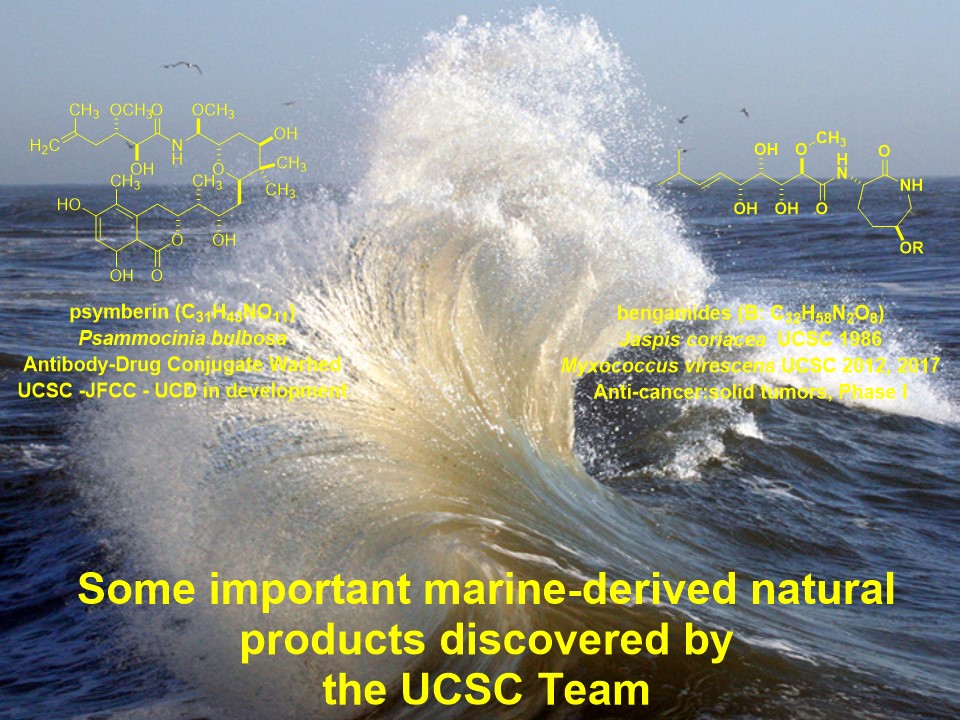News & Events
Phil Crews, Ph.D.
Posted on April 20, 2018

When
Date - April 20, 2018
1:00 pm - 2:00 pm
What
Distinguished Research Professor of Chemistry
Department of Chemistry and Biochemistry
University of California, Santa Cruz
Abstract:
“Mining the UCSC Repository for Marine Biosynthetic Products from Sponges and Gram-negative Bacteria to Obtain Significant Outcomes”
The marine natural products program begun at UC Santa Cruz (UCSC) many decades ago has a rich history and continued promise for future significant discoveries. Our repository contains approximately 4,000 extracts from tropical marine sponges, more than 500 strains of marine Gram-negative derived bacteria, plus more than 1,100 purified natural product compounds The goal to obtain unique molecules from biota derived from biodiverse regions of Oceania has been rewarding. It continues to be the driving force for all of the ongoing projects in the field and in the laboratory. Our continuing collaboration with Indonesian Scientists constitutes another cornerstone for the various ongoing projects.
My lecture will begin with a brief summary of past achievements involving psymberin and the bengamides, which are putative dual marine sponge – microbial products. This prelude will underscore the continuing value and challenge of developing sponge natural products as therapeutic leads. Of wide interest is the goal to obtain and culture marine-derived microorganisms that are able to produce, during sustained culture, especially compounds that have been repeatedly isolated from sponges. A status report of work in this area will be discussed using the molecular structures of sponge and sponge Gram Negative derived bacteria to define illustrate several fundamentals. Contemporary strategies employing NMR and MS data provide the key to crisp approaches for structure elucidations and rapid compound dereplications. Examples of these results involve: (a) NMR data and conclusions focused on the so called “Crews Rule,” and compounds with H/C<1, and (b) MS/MS sata, using the emerging Dorrestein – Alexandrov GNPS informatics strategy. Finally, results from our collaboration with Prof. F. Valeriote (Ford Cancer Center) will be highlighted, which involve PANC-1 selective nM cytotoxins obtained from sponges housed in our repository.






